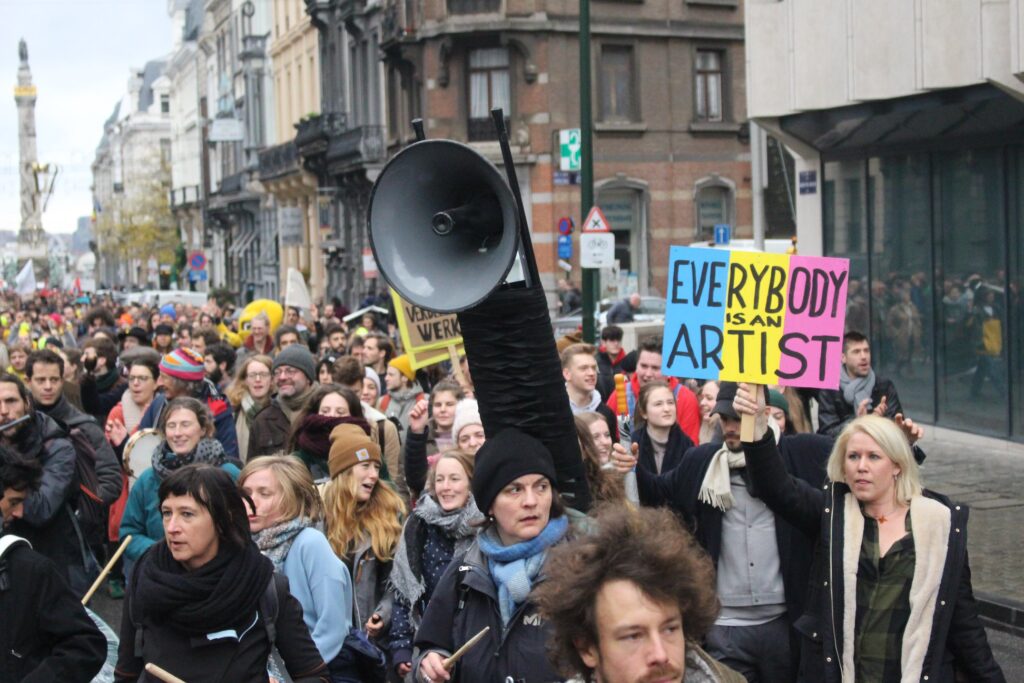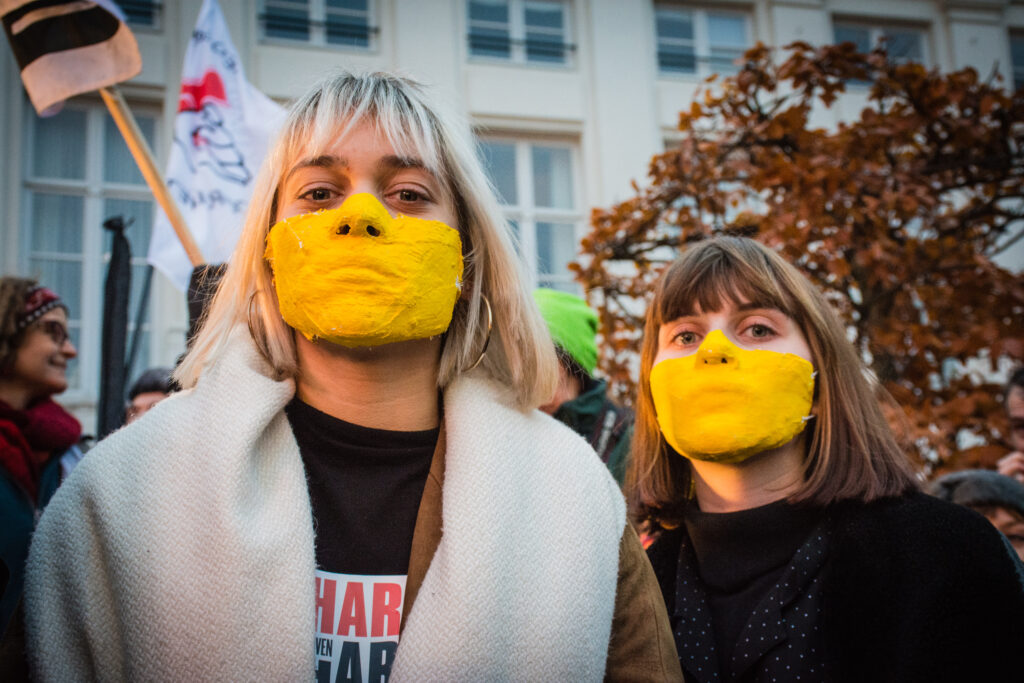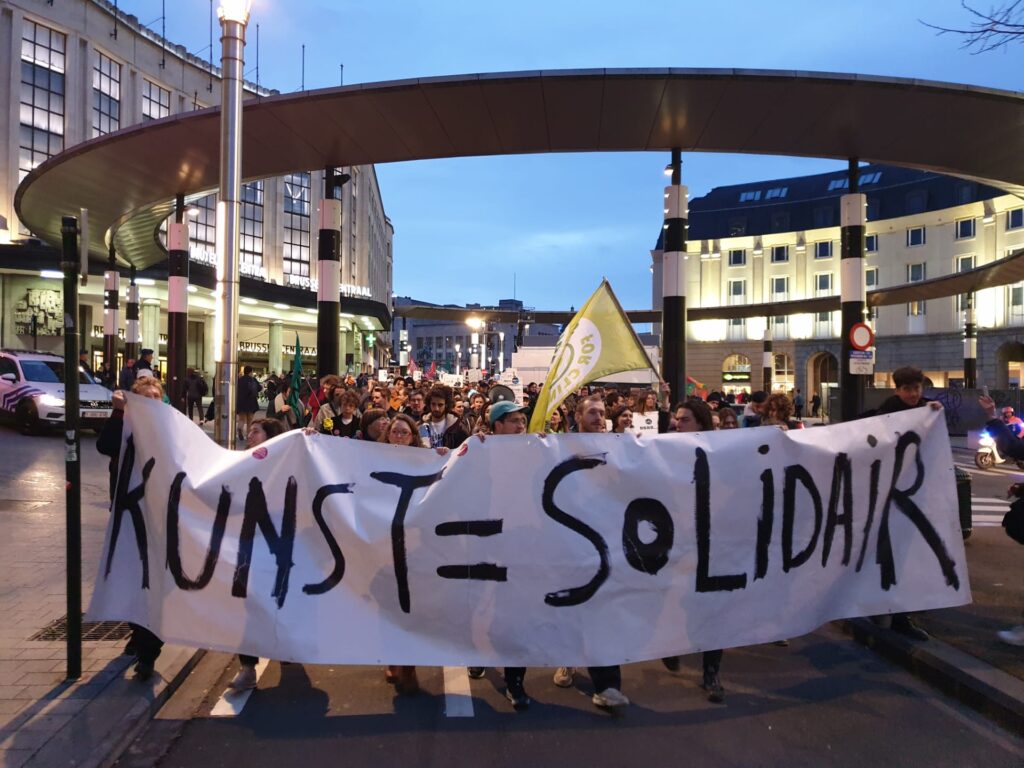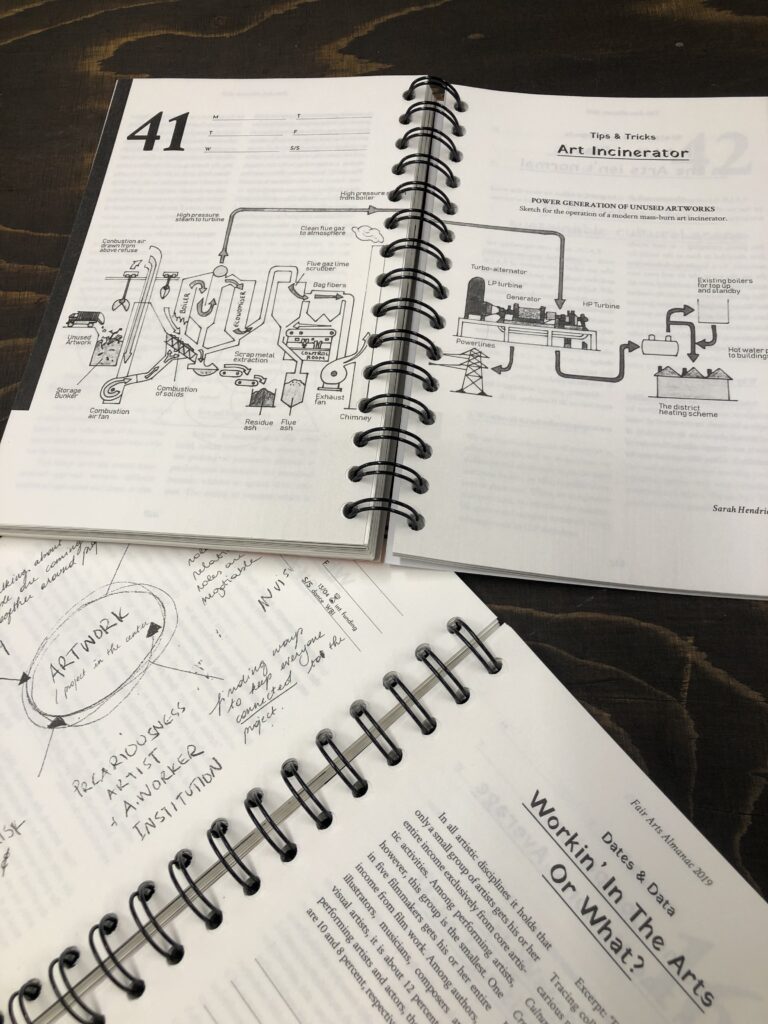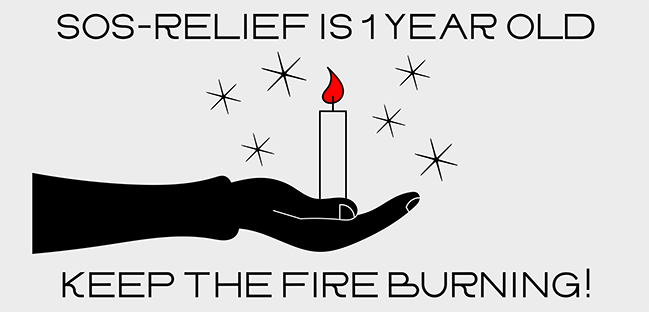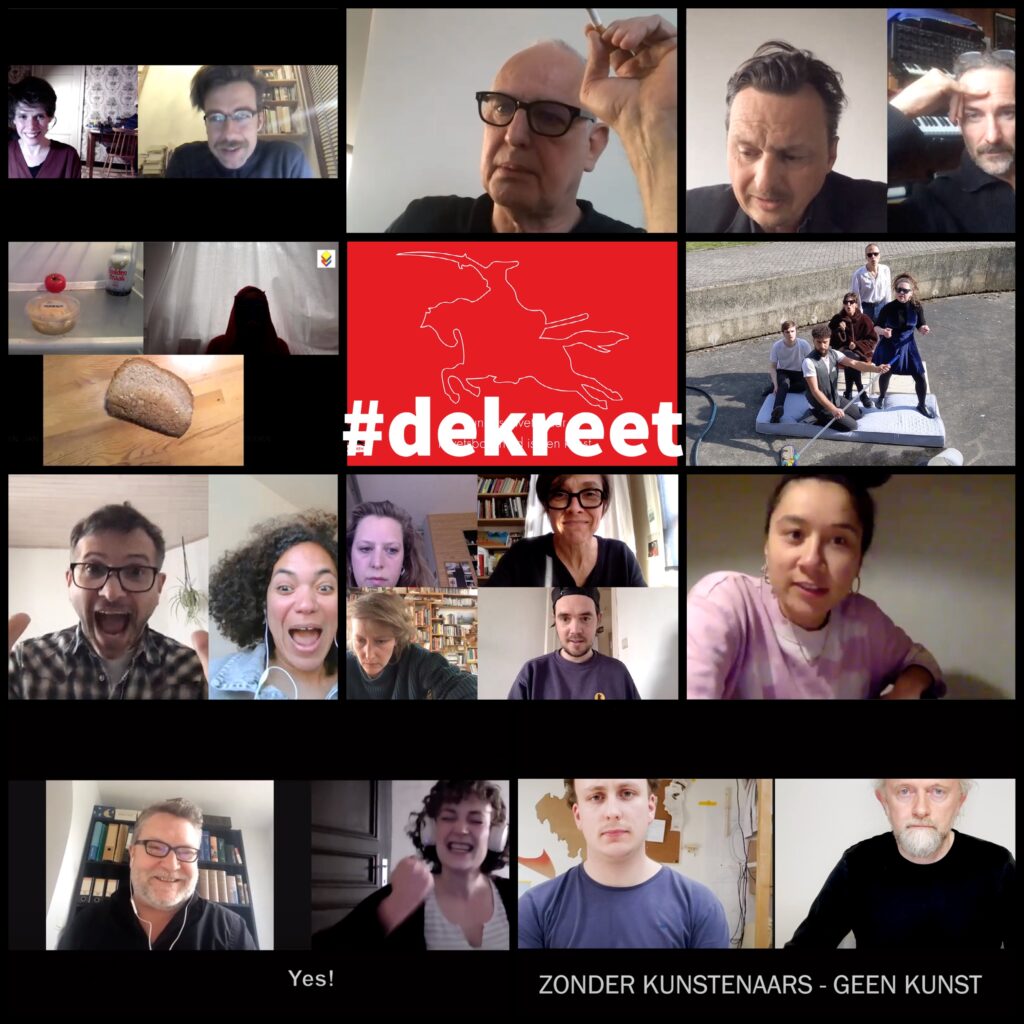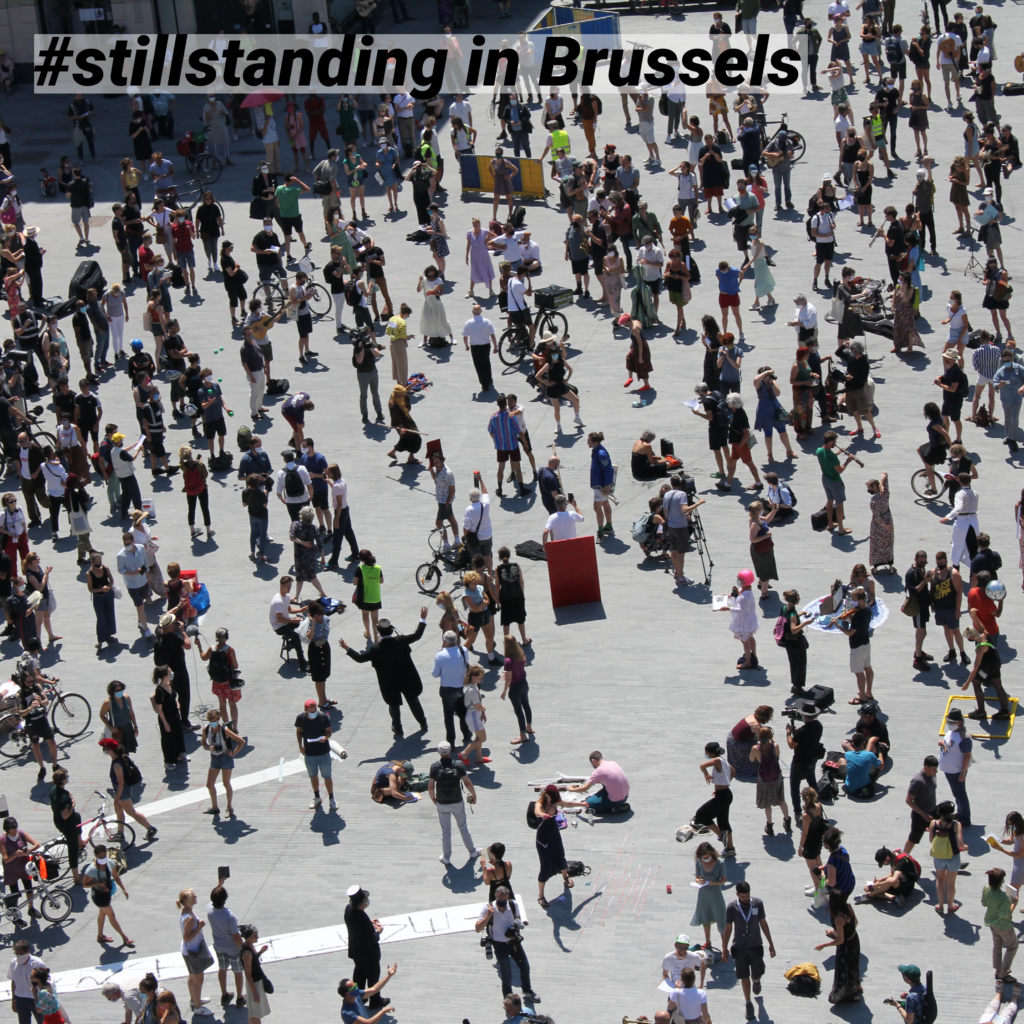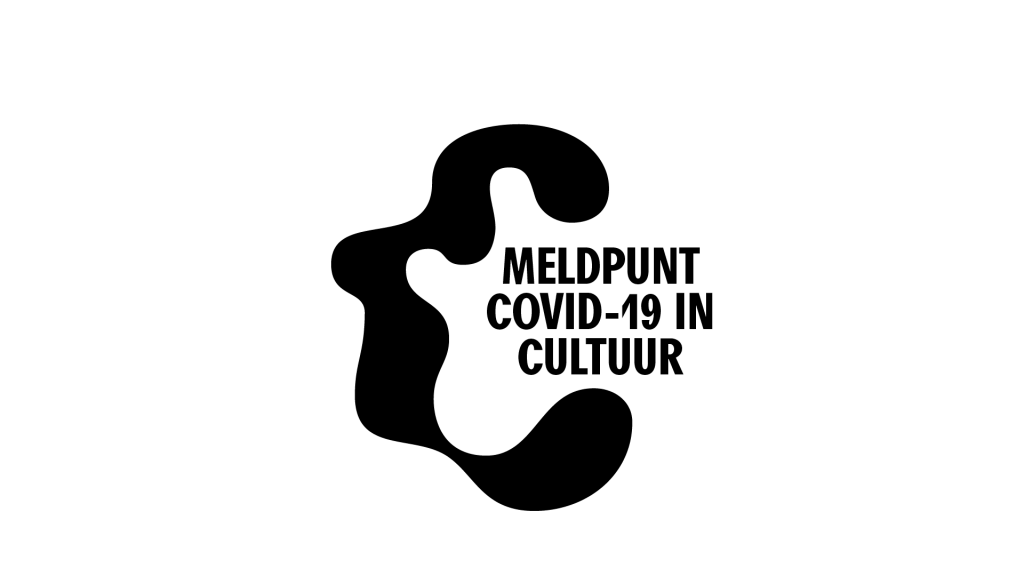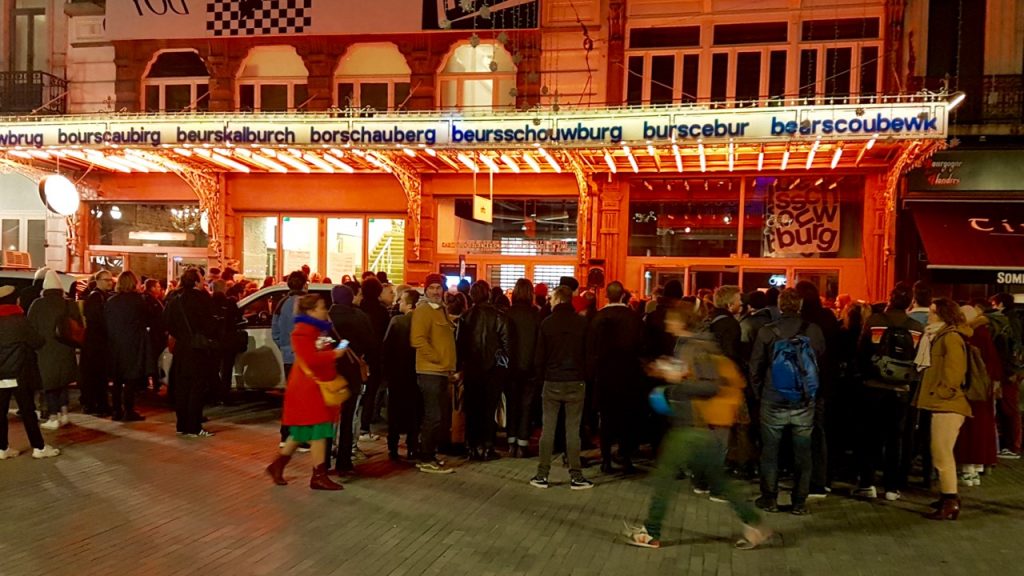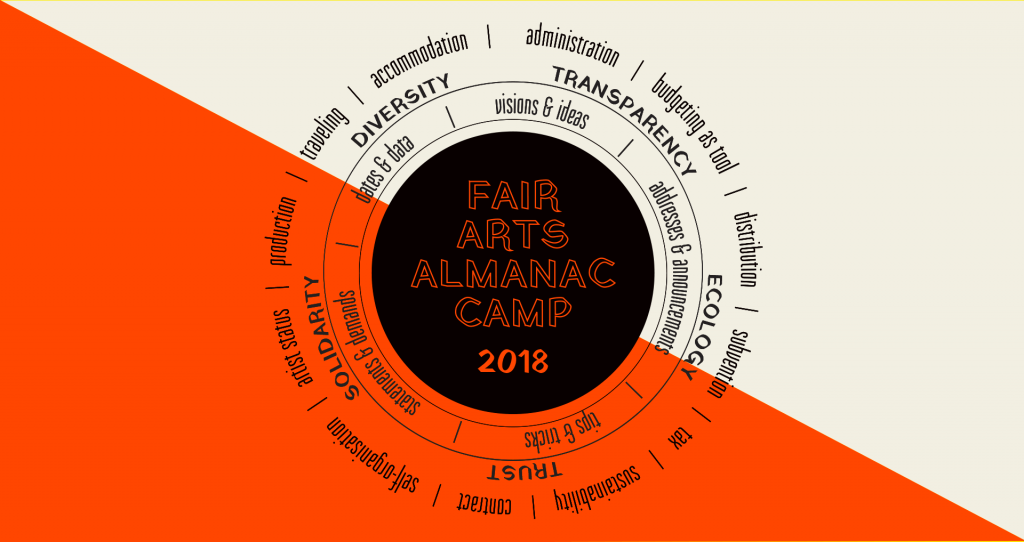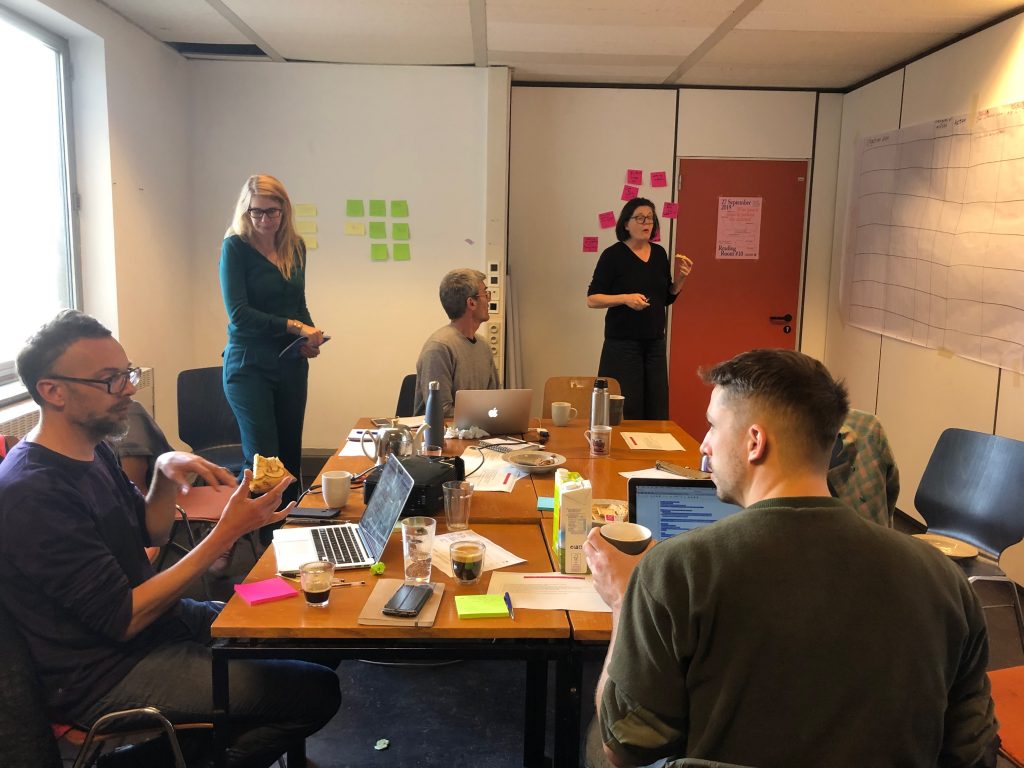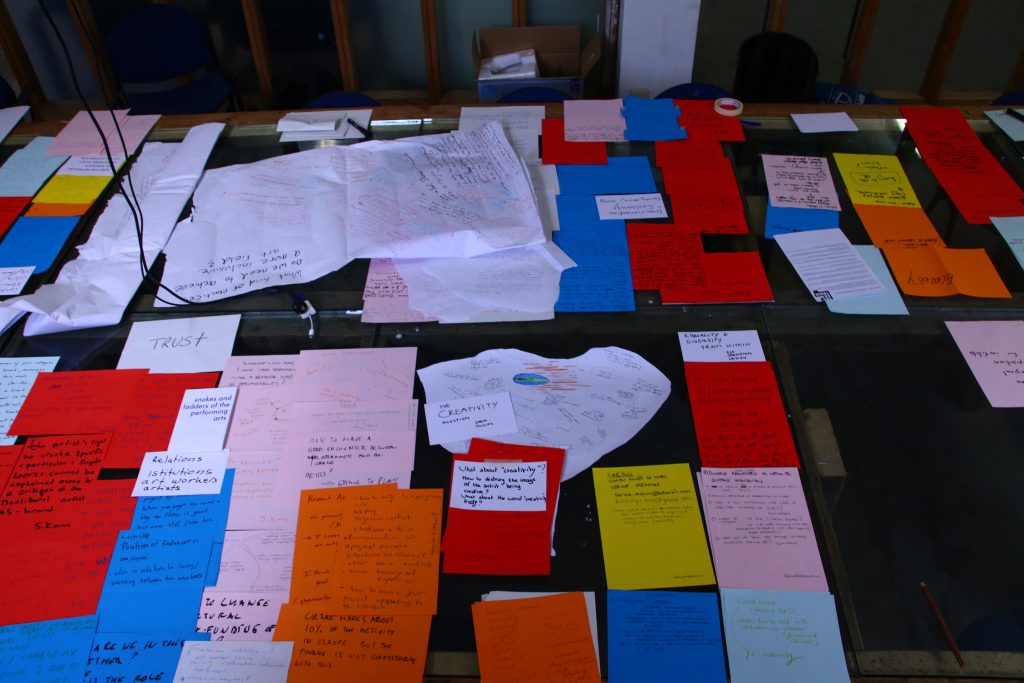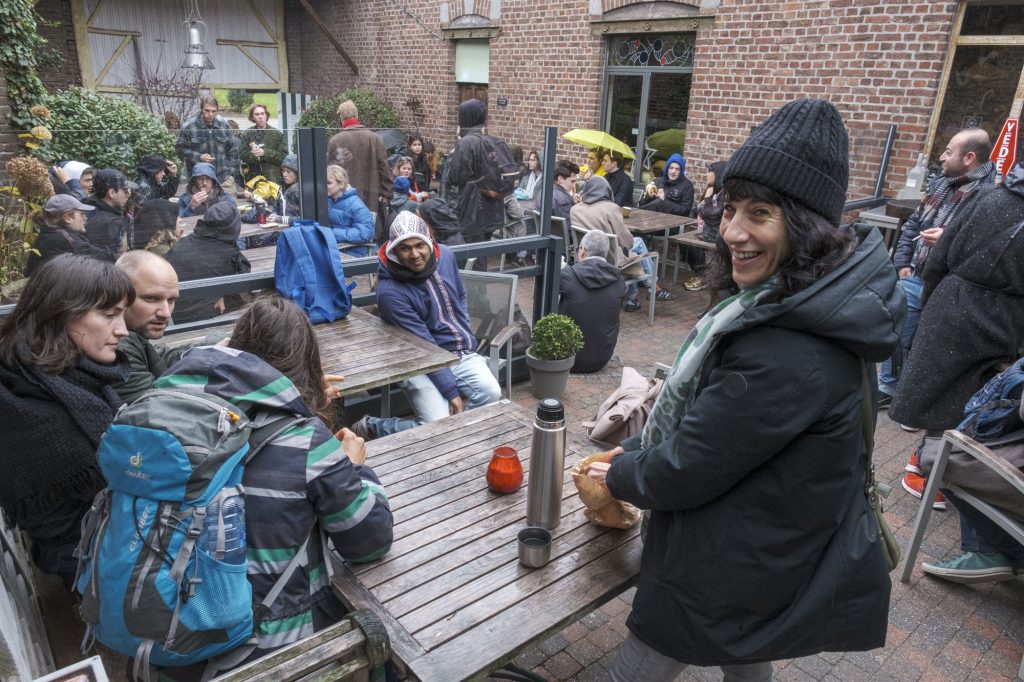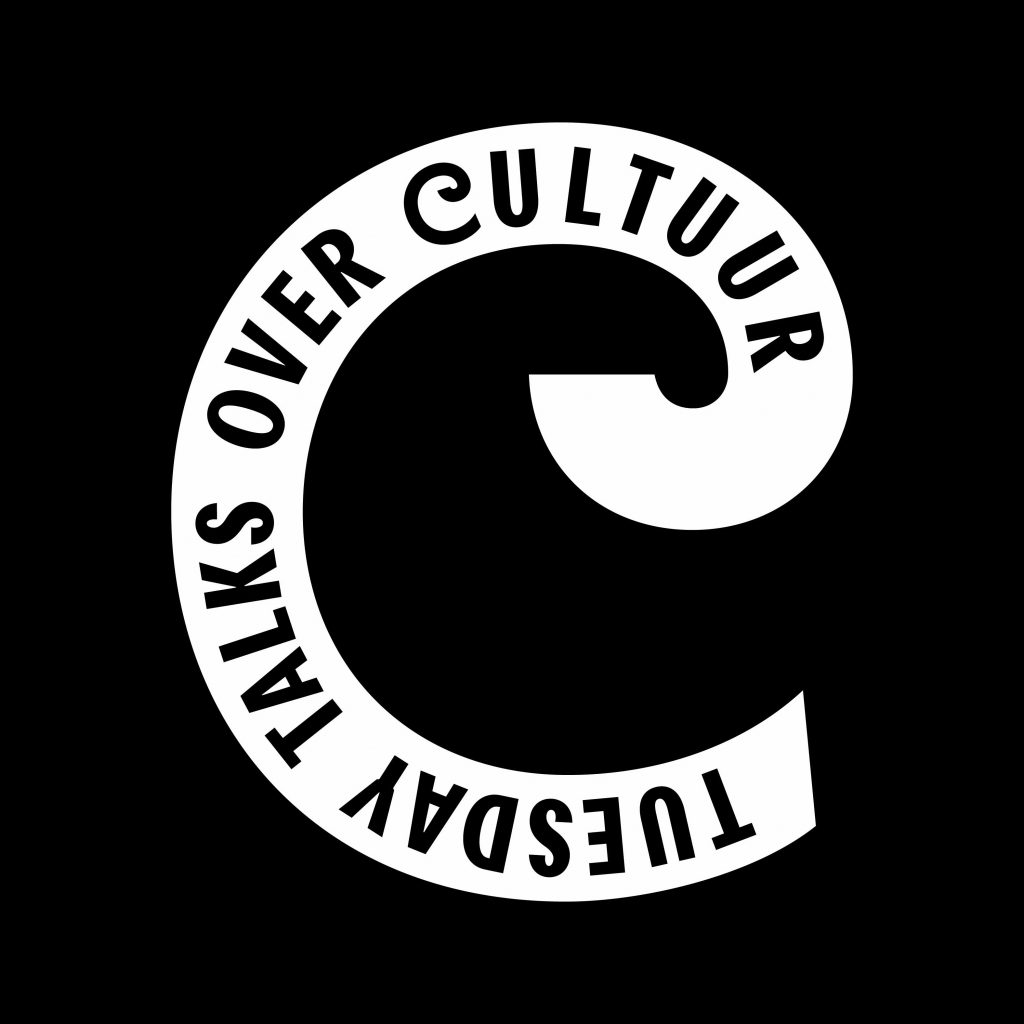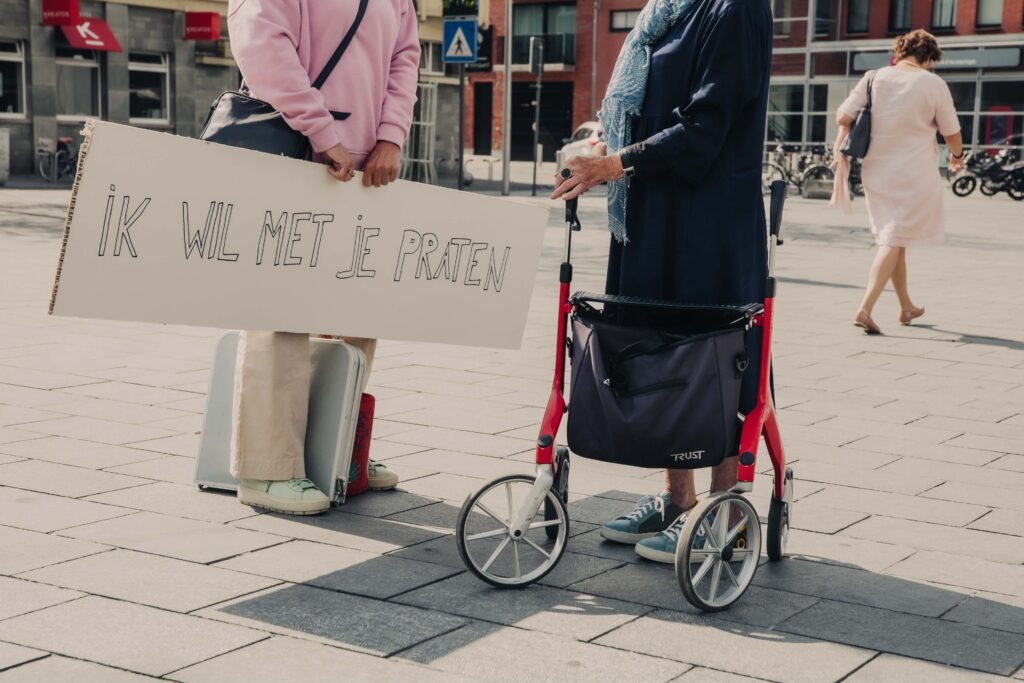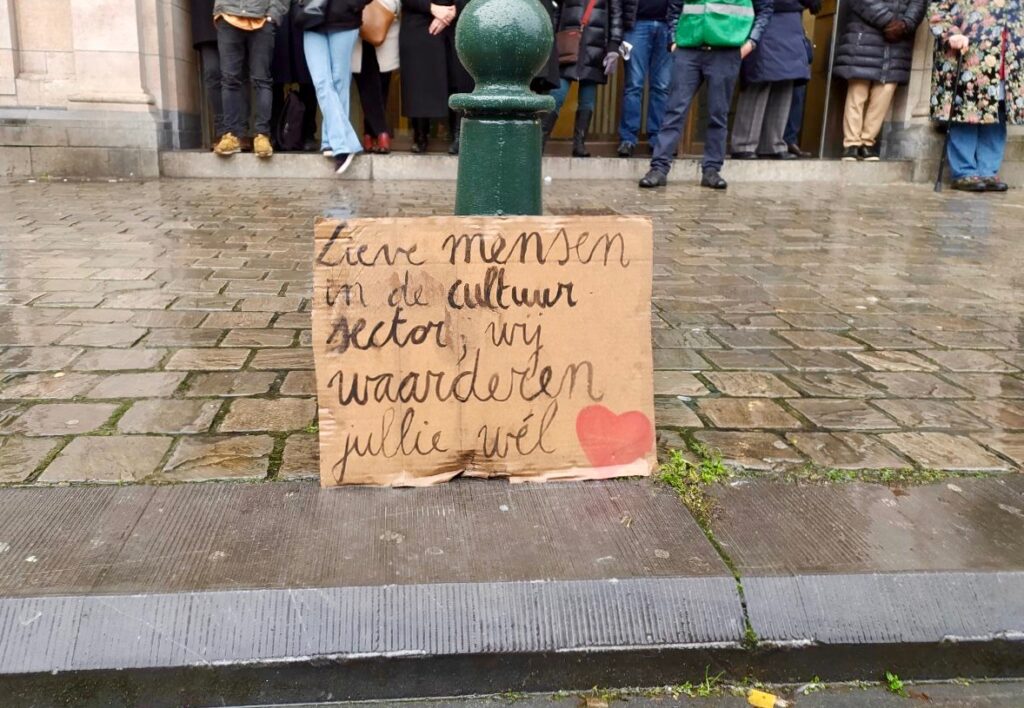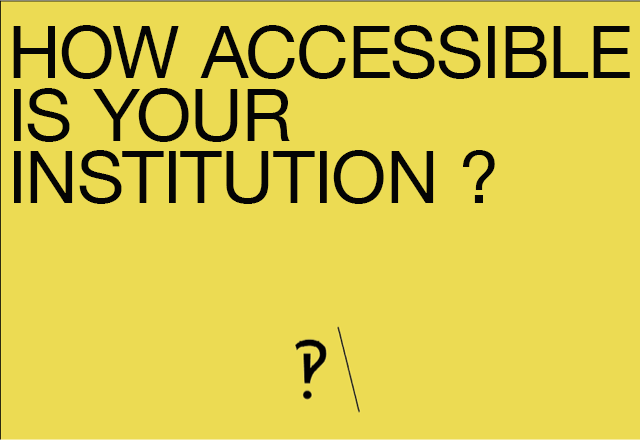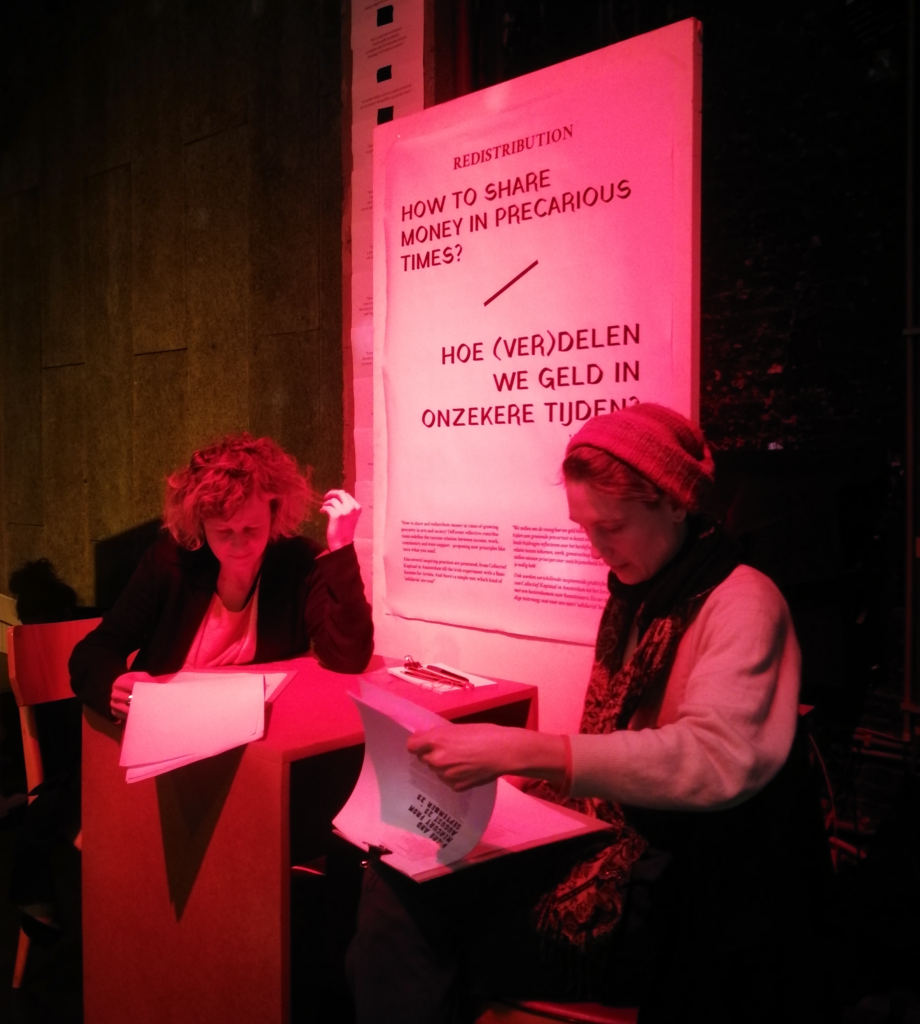NL
De alliantie nu bekend onder de naam State of the Arts (SOTA) ontstond in 2013 toen een groep kunstenaars, kunstwerkers en organisaties zich samen verzetten tegen de besparingen die de Belgisch-Vlaamse politiek in het algemeen – en zijn culturele beleidsmakers in het bijzonder – afkondigde, met name ten opzichte van kunst en kunstenaars.
SOTA vindt dat kunst en kunstproductie een belangrijke bijdrage leveren in de brede samenleving en faire condities verdienen om zich ten volle te kunnen te ontplooien.
SOTA komt op voor een cultuurbeleid dat geïnformeerd en afgestemd is op de feitelijke noden en werkwijzen van artistieke praktijken, en zet zich daarbij met name in voor de verbetering van de condities en werkomstandigheden van onafhankelijke kunstenaars en kunstwerkers.
SOTA komt op voor een fair kunstenveld: een kunstenveld als een ecosysteem gebaseerd op transparantie, solidariteit, duurzaamheid, diversiteit en vertrouwen.
SOTA gelooft dat de sterkte van het artistieke landschap in Vlaanderen en België ligt in zijn enorme diversiteit van praktijken, spelers, kunstvormen, structuren en organisatiemodellen. Dit rijk ecosysteem is zowel uniek als internationaal erkend.
SOTA vraagt cultuurbeleidsmakers met aandrang om te erkennen en ondersteunen dat de processen, visie en waarden van kunst vaak afwijken van bestaande bedrijfs- en marktmodellen. Daarom keurt SOTA de standaardisering van kunst als ‘creatieve industrie’ af.
SOTA werkt ook samen met andere sectoren en middenveldorganisaties zoals de zorgsector, het onderwijs, de sociale sector of the publieke omroep. Met deze coalities wil SOTA de solidariteit in de samenleving versterken en de krachten bundelen om samen te strijden voor samenleving waar welzijn boven winst staat.
SOTA opereert als een open en horizontaal platform dat spreekt met de meerstemmigheid van de stemmen die het bijeenbrengt. Het platform is gestructureerd in zes groepen, elk met aparte mandaten en taken, die samenkomen in een ankergroep. Maandelijkse open vergaderingen laten toe dat steeds weer nieuwe inzichten en mensen instromen.
FR
L’alliance connue aujourd’hui sous le nom de State of the Arts (SOTA) a vu le jour en 2013 lorsqu’un groupe d’artistes, de travailleurs de l’art et d’organisations ont uni leurs forces pour s’opposer contre les mesures d’austérité que la politique Belge/Flamande en général – et ses responsables de la politique culturelle en particulier – ont prises à l’égard de l’art et des
SOTA estime que l’art apportent une contribution importante à la société et mérite des conditions équitables pour s’épanouir.
SOTA s’efforce de mettre en place des politiques culturelles qui sont informées par les besoins réels et le modus operandi des pratiques artistiques, et défend l’amélioration des conditions pour les artistes et les travailleurs artistiques indépendants en Flandre et en Belgique.
SOTA défend un domaine artistique équitable: un écosystème interdépendant basé sur la transparence, la solidarité, la durabilité, la diversité et la confiance.
SOTA estime que la force du champ artistique en Flandre et en Belgique émane de sa diversité de pratiques, d’acteurs, de formes d’art, de soutiens structurels et de modèles organisationnels. Ce riche écosystème de pratiques est à la fois exceptionnel et reconnu internationalement.
SOTA demande avec insistance que la politique culturelle reconnaisse et soutienne explicitement le fait que les processus, les visions et les valeurs de l’art divergent très souvent des modèles commerciaux et de marché existants. SOTA refuse la standardisation des arts en une “industrie créative”.
SOTA collabore également avec d’autres secteurs de la société civile tels que les soins de santé, l’éducation, le secteur social ou les médias publics. Avec ces coalitions, SOTA veut renforcer la solidarité dans la société et unir ses forces dans un changement de paradigme plus large vers un monde dans lequel le bien-être prime sur le profit.
SOTA fonctionne comme une plateforme ouverte et horizontale qui parle avec une multiplicité de voix. La plateforme est structurée en six groupes, chacun ayant des mandats et des tâches distincts, qui sont réunis dans un groupe d’ancrage. Des réunions mensuelles ouvertes permettent d’apporter de nouvelles contributions et de nouveaux participants à la plateforme.
EN
The alliance now known as State of the Arts (SOTA) came to be in 2013 when artists, artworkers and organisations rallied to address their concerns with the austerity measures that Belgian/Flemish politics in general – and its cultural policy makers in particular – took in relation to art & artists.
SOTA believes that art and its labor offer an important contribution to society and merit fair conditions to flourish.
SOTA strives for cultural policies that are informed by the actual needs and modus operandi of art practices, and stands up for the improvement of the conditions for independent artists and artworkers in Flanders and Belgium.
SOTA stands up for a fair arts field: an arts field as an interindependent ecosystem based on transparency, solidarity, sustainability, diversity and trust.
SOTA believes that the strength of the artistic landscape in Flanders and Belgium emanates from its diversity of practices, players, art forms, structural supports, and organizational models. This rich ecosystem of practices is both exceptional and internationally recognized.
SOTA resoundingly demands that cultural policy explicitly acknowledges and supports the fact that the processes, visions, and values of art very often diverge from existing business and market models. SOTA refuses the standardization of the arts into a ‘creative industry’.
SOTA also collaborates with other civil society sectors such as health care, education, the social sector or public media. With these coalitions, SOTA wants to enforce solidarity in society and join forces in a broader paradigm shift towards a world in which wellbeing rules over profit.
SOTA operates as an open and horizontal platform that speaks with a multiplicity of voices. The platform is structured in six groups, each with separate mandates and tasks, that are joined in an anchor group. Monthly open meetings allow for new input and new participants to continuously flow into the platform.

